Dear Valued Guests, we understand how important it is for you to connect with your loved ones during their stay in our hospital. As part of our commitment to ensuring a safe and welcoming environment, we are updating our visitor policy to better accommodate everyone while prioritizing health and safety. This update reflects current guidelines to enhance your experience and support the well-being of our patients and staff. We invite you to read more about these important changes and how they may affect your visit.
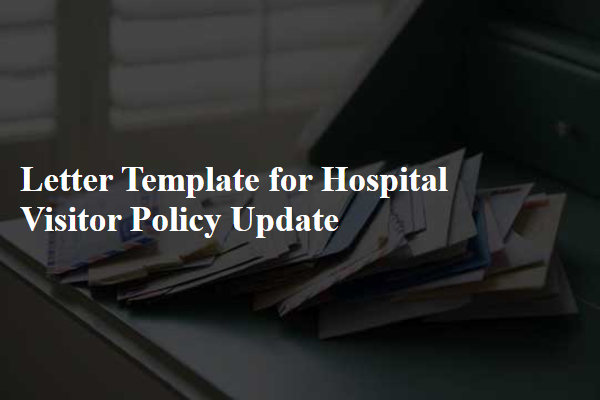
Clarity and Conciseness
The updated hospital visitor policy provides clear guidelines for individuals visiting patients. Visitors must adhere to specific visiting hours from 10 AM to 8 PM, ensuring adequate rest periods for patients. Each patient is allowed two designated visitors at a time, promoting a calm environment for recovery. Health screenings, including temperature checks and symptom assessments, will be conducted at entry points to maintain a safe atmosphere. Visitors must wear face masks while inside the facility, adhering to CDC guidelines. Additionally, all visitors are required to sanitize their hands upon entering and leaving patient rooms. This policy aims to balance patient safety and emotional support from loved ones during their hospital stay.
Compliance and Regulations
The updated hospital visitor policy, effective immediately, emphasizes the importance of compliance with health regulations to ensure safety for patients and staff. Visitors must adhere to current guidelines set forth by the Centers for Disease Control and Prevention (CDC) regarding mask-wearing, social distancing, and hand hygiene within the facility. Each visitor is required to complete a health screening questionnaire upon entry, which includes inquiries about recent travel, exposure to contagious diseases, and any symptoms consistent with respiratory illnesses. Specific visitor restrictions remain in place for high-risk areas, such as intensive care units (ICU) and maternity wards, limiting visitation to essential caregivers only, to protect vulnerable populations. This policy aligns with state health department directives to mitigate the spread of infectious diseases, ultimately contributing to the overall health and well-being of the community served by the hospital.
Visitor Restrictions and Allowances
Hospital visitor policies often adjust based on public health considerations and patient care standards. As of October 2023, many facilities implement visitor restrictions to enhance patient safety and infection control. For instance, hospitals may limit visitation hours to specific times, such as 5 PM to 7 PM, and allow only one designated visitor per patient per day to minimize exposure. Additional allowances may include exceptions for pediatric patients, who may have two parents or guardians present, or for patients facing end-of-life situations, where more visitors may be permitted based on individual circumstances. Proper screening procedures, including temperature checks and health questionnaires, are mandatory for all visitors entering the facility, ensuring a safe environment for both patients and hospital staff.
Safety and Health Measures
The updated hospital visitor policy emphasizes enhanced safety and health measures to protect patients, staff, and visitors within healthcare facilities. As of October 2023, the outlined guidelines include restricted visiting hours, limited visitor numbers per patient to only two, and mandatory wearing of face masks upon entering the hospital premises. Additionally, enhanced sanitation protocols (disinfecting high-touch areas every hour) will be strictly enforced, along with temperature screenings at all entry points. Visitors exhibiting symptoms of illness (cough, fever, or shortness of breath) will be denied entry to ensure overall safety. Compliance with these measures is crucial for maintaining a safe environment during ongoing public health concerns.
Communication and Accessibility
The recent update in hospital visitor policy emphasizes enhancing communication and accessibility for patients and their families. Hospitals, such as St. Mary's Medical Center in California, now encourage virtual visits through platforms like Zoom and FaceTime to ensure connection even during restricted hours. Clear signage and information on accessibility options are provided throughout facilities to assist visitors with disabilities. Enhanced language services, including translation for over 200 languages, aim to support non-English speaking families in understanding policies and procedures. These changes facilitate a more inclusive environment, promoting patient welfare and well-being during their stay.
Letter Template For Hospital Visitor Policy Update Samples
Letter template of hospital visitor policy enhancements for surgical departments
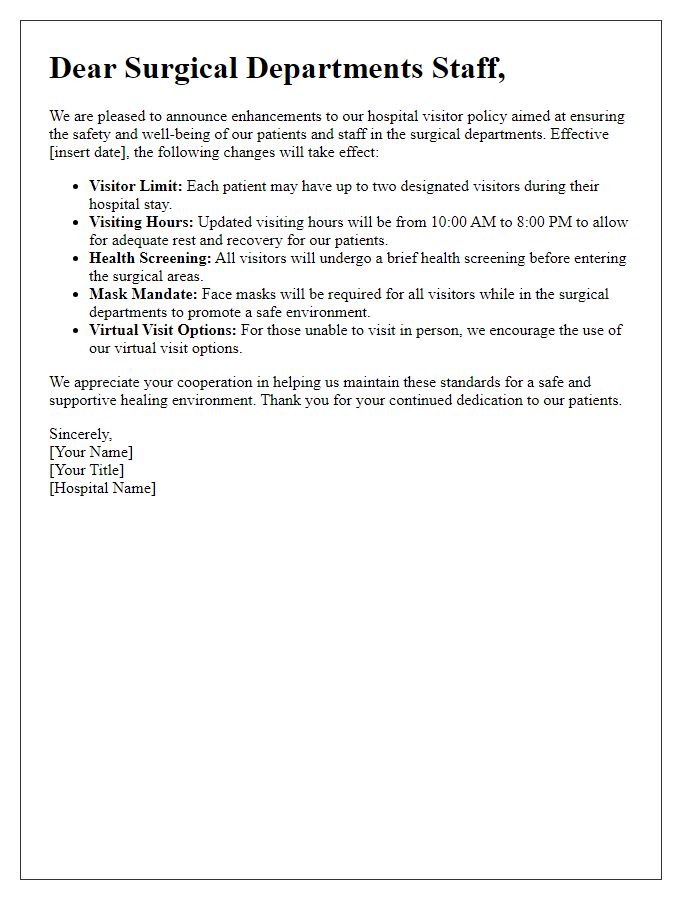

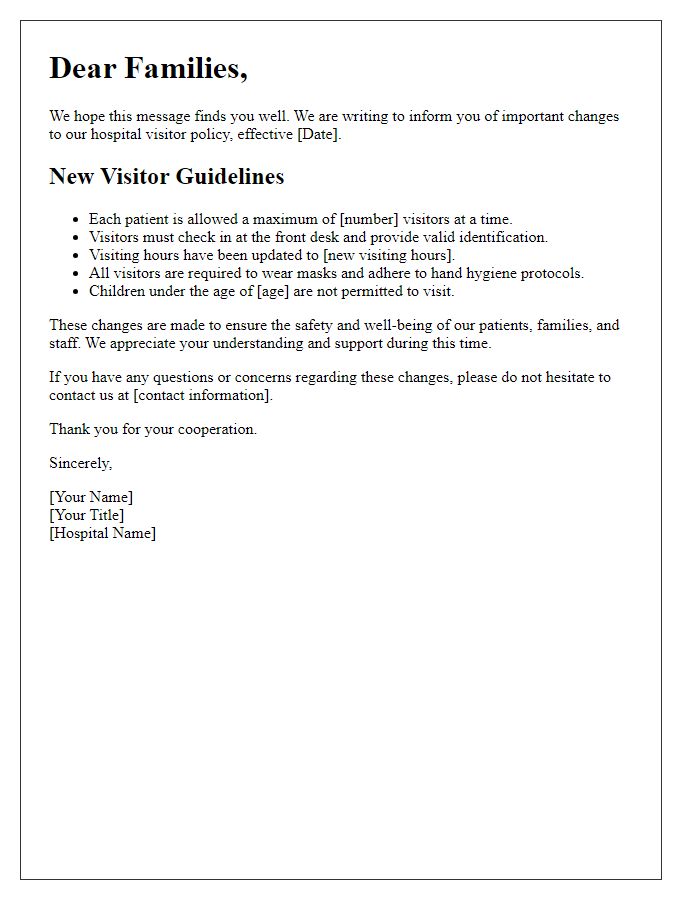
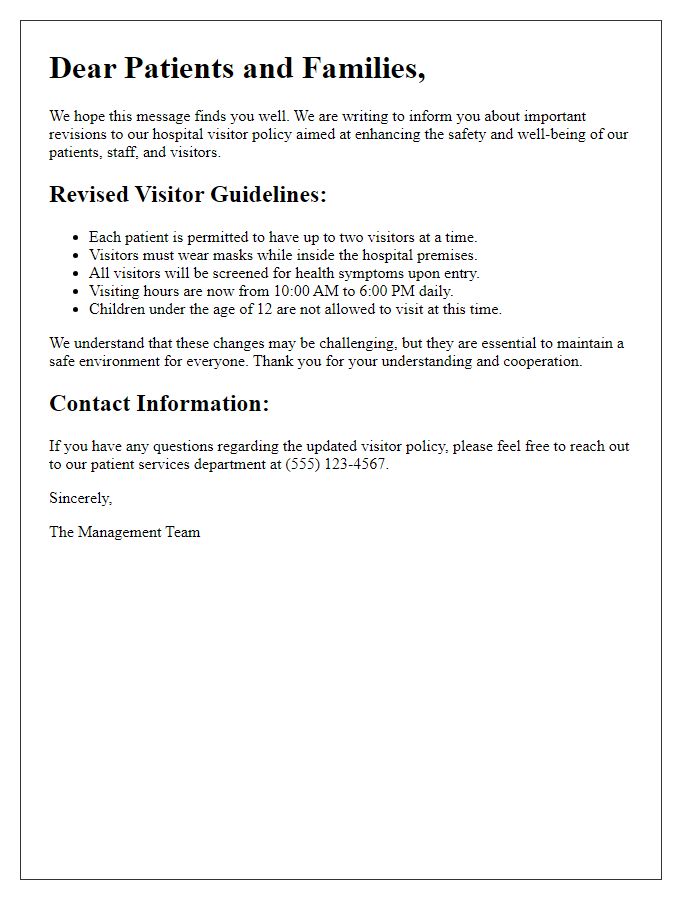
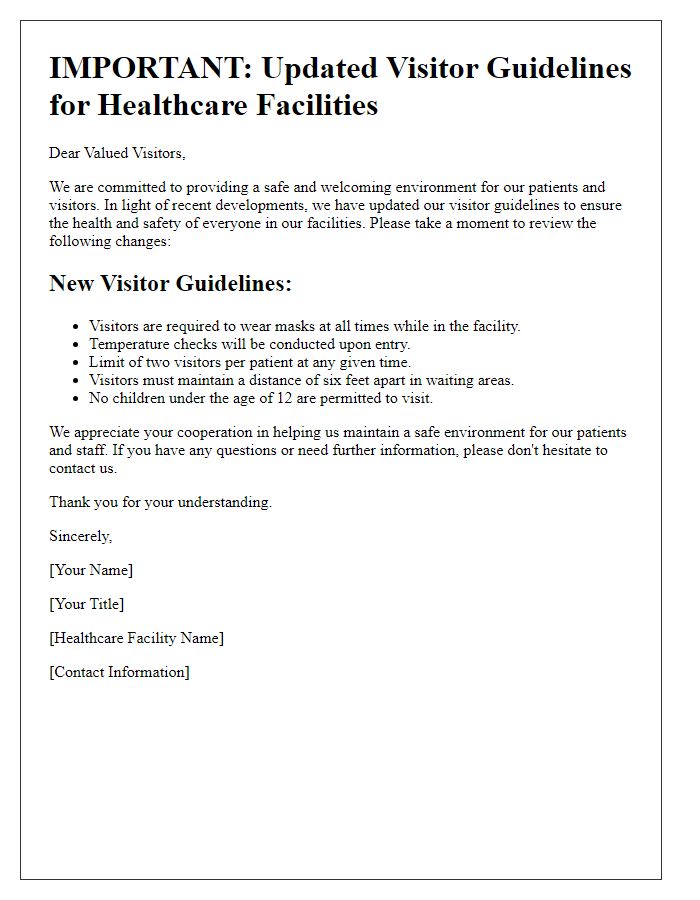
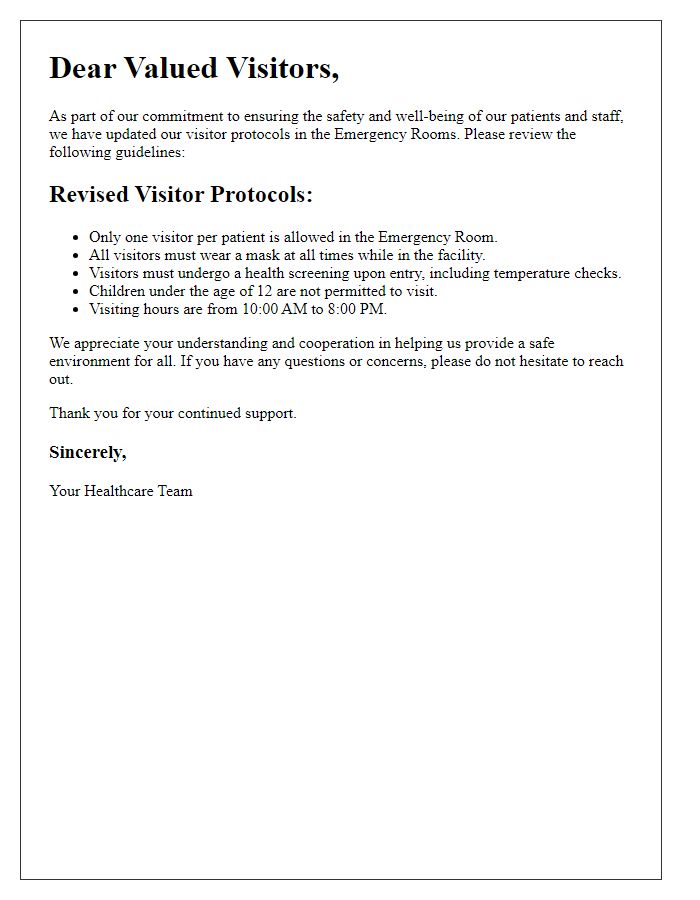
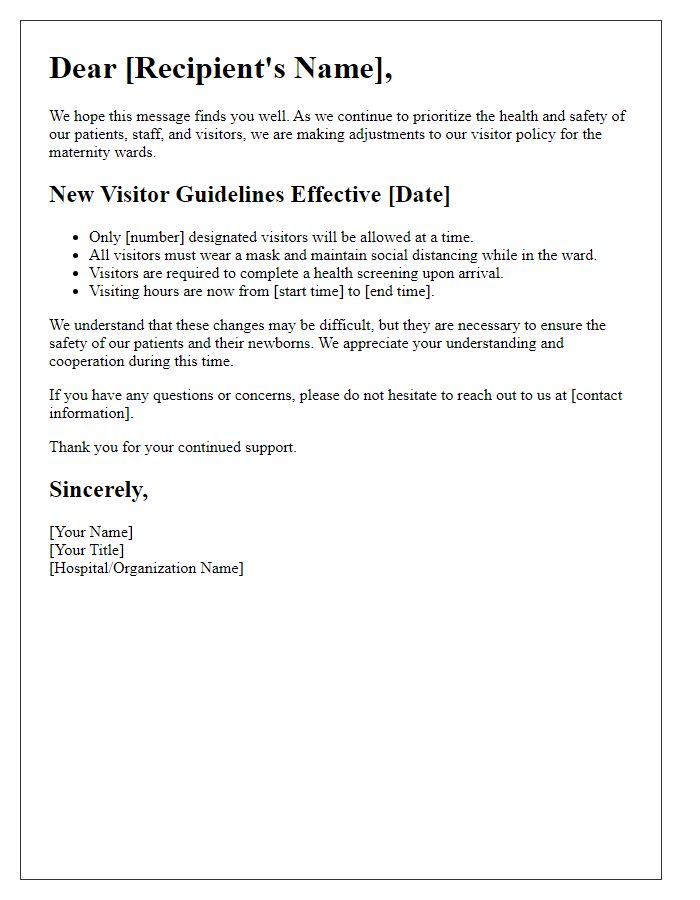
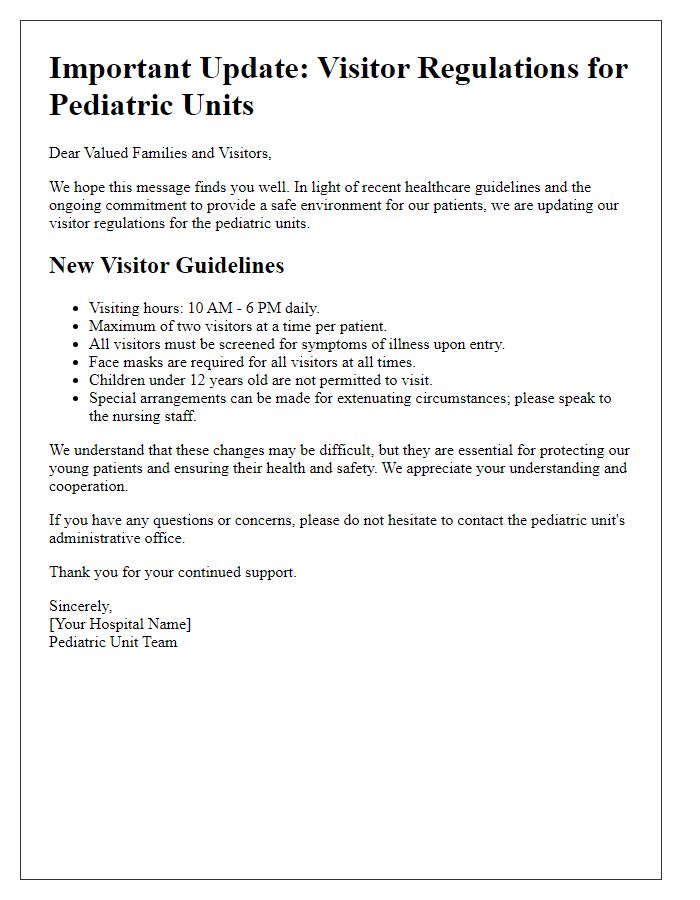
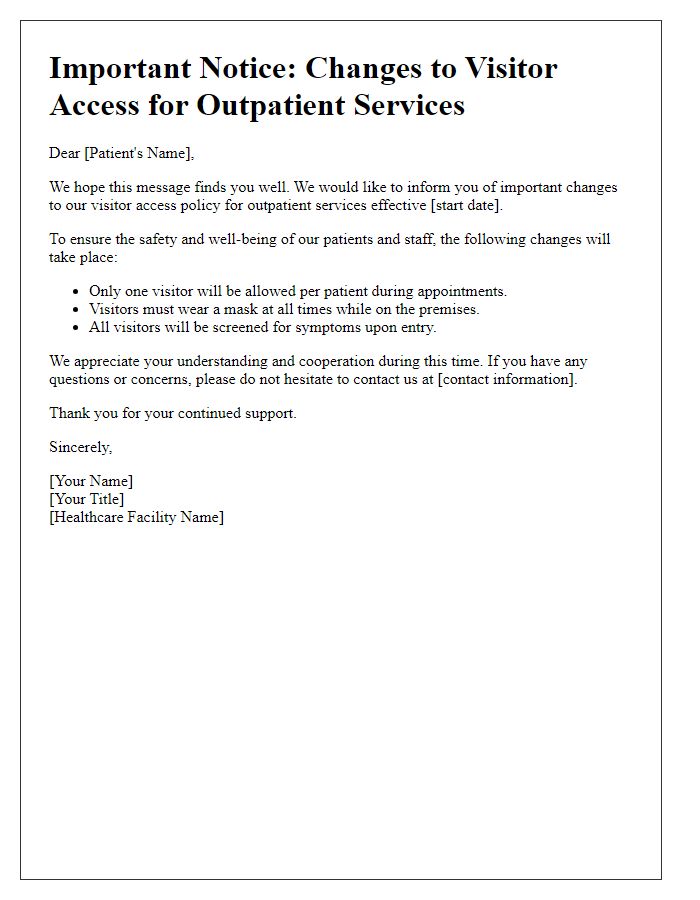
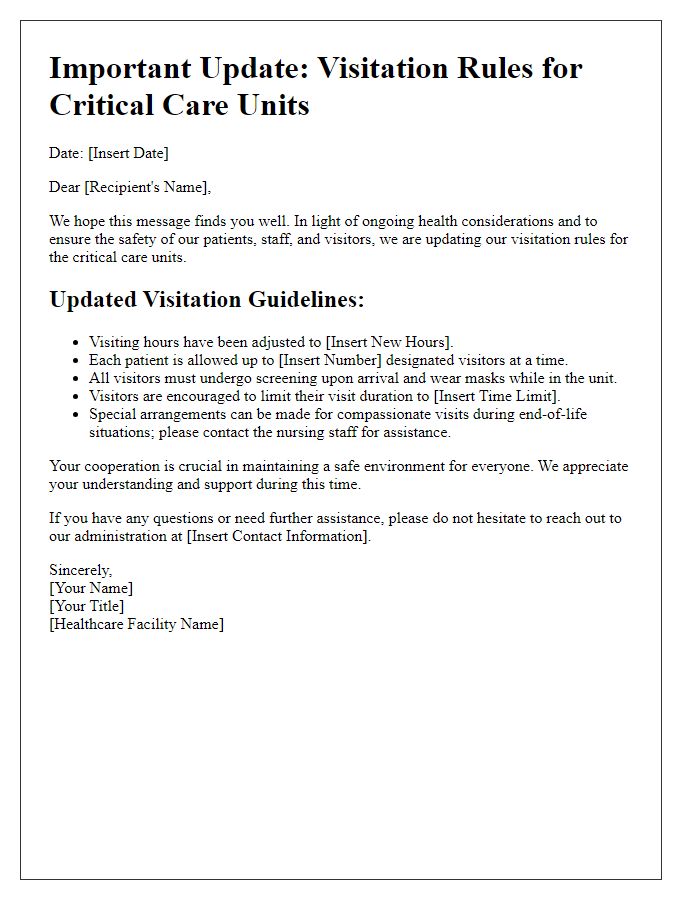
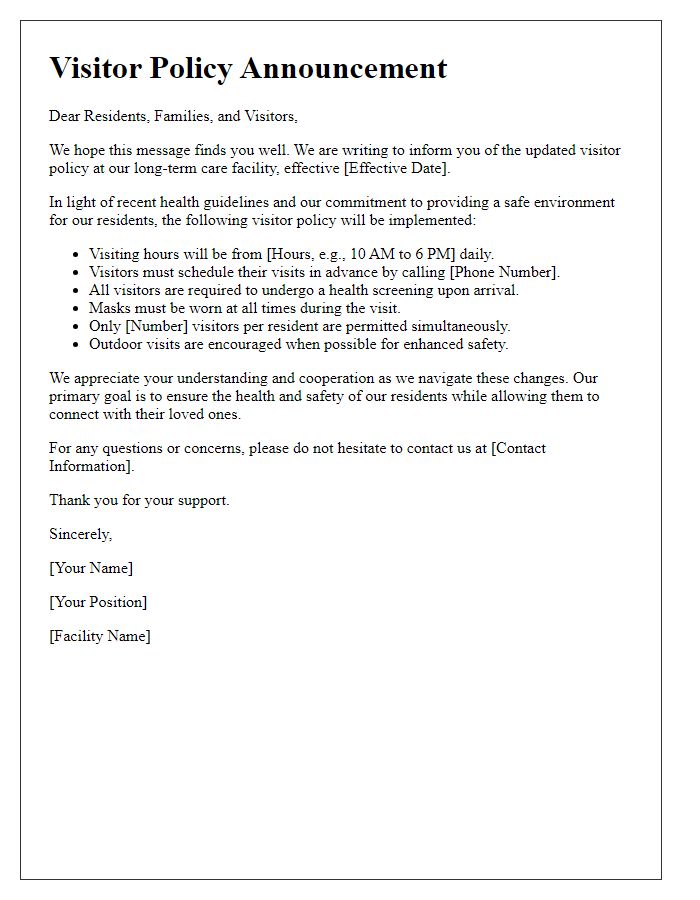


Comments